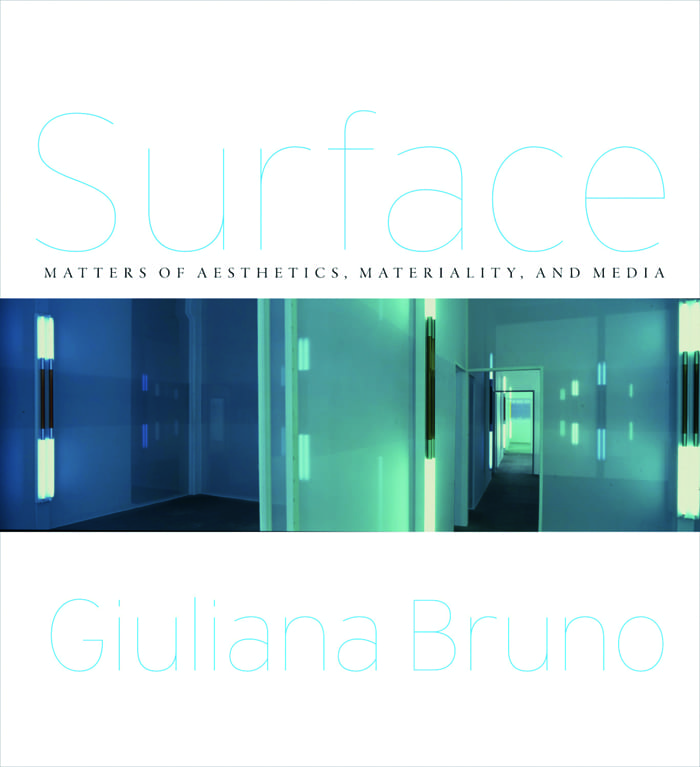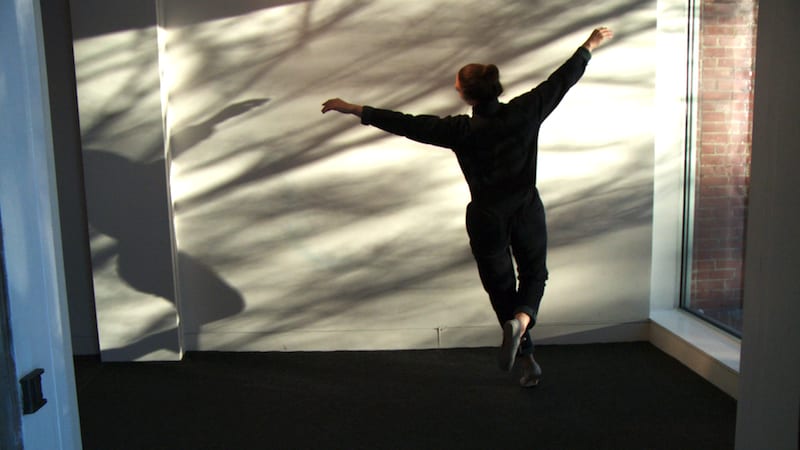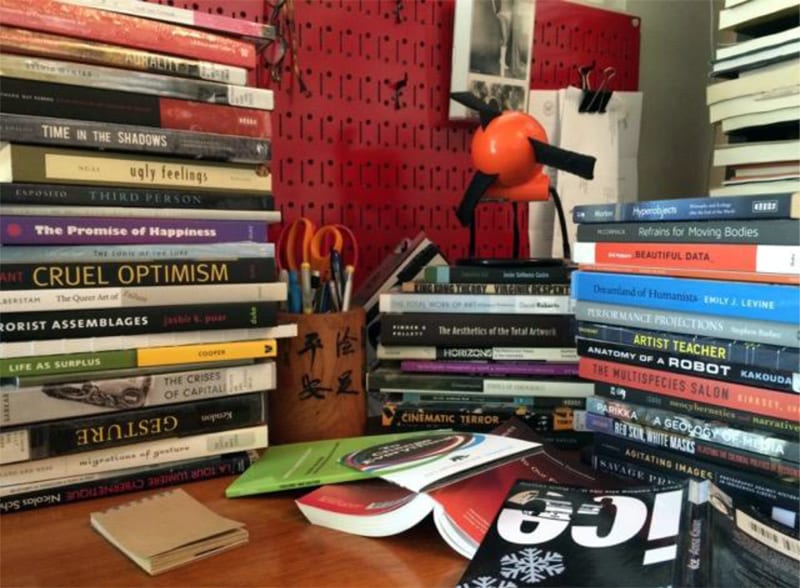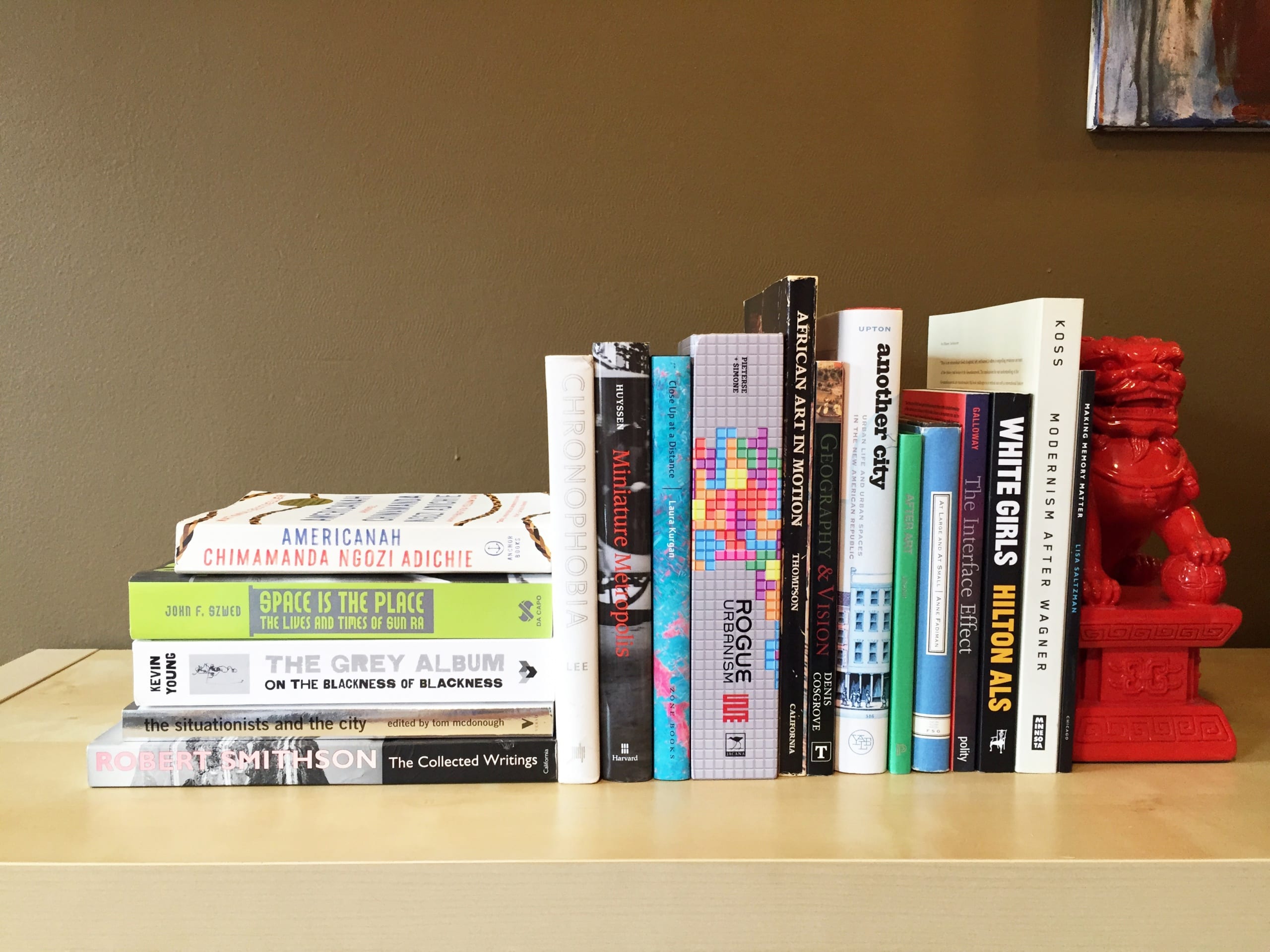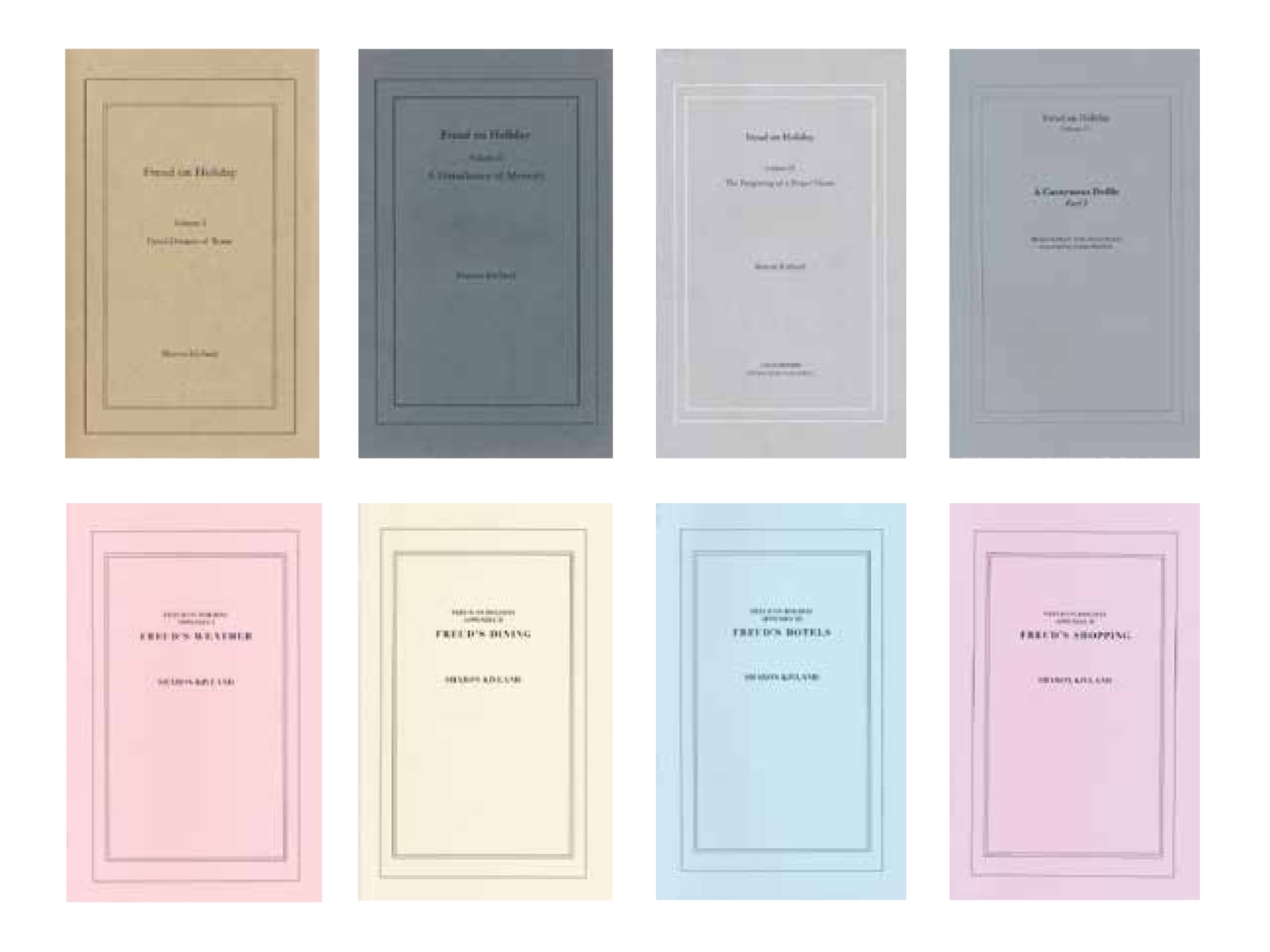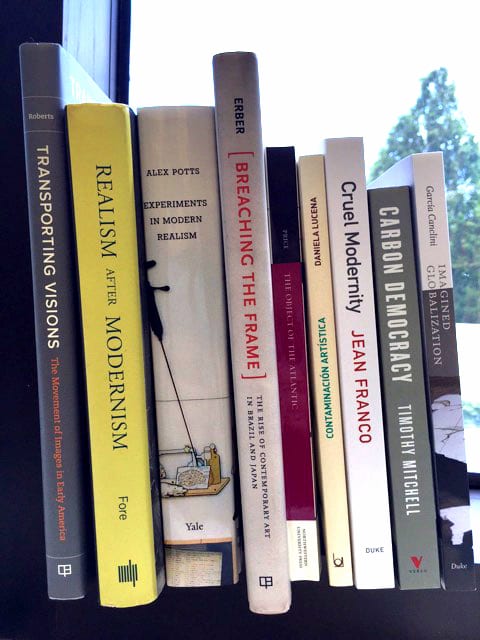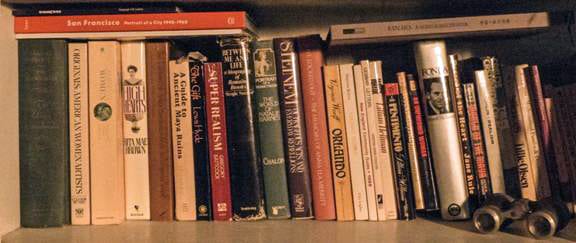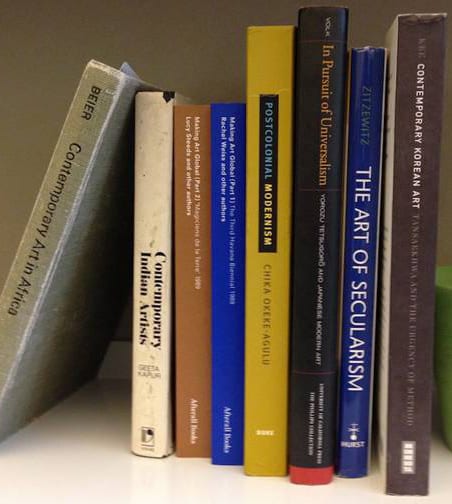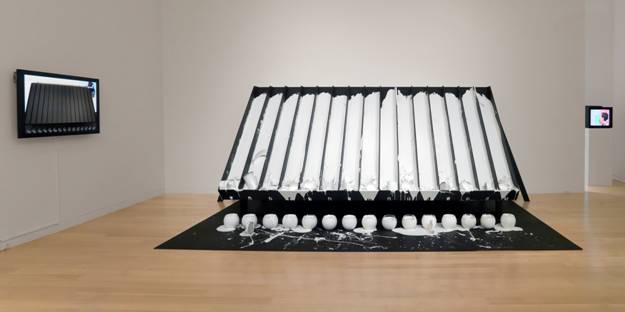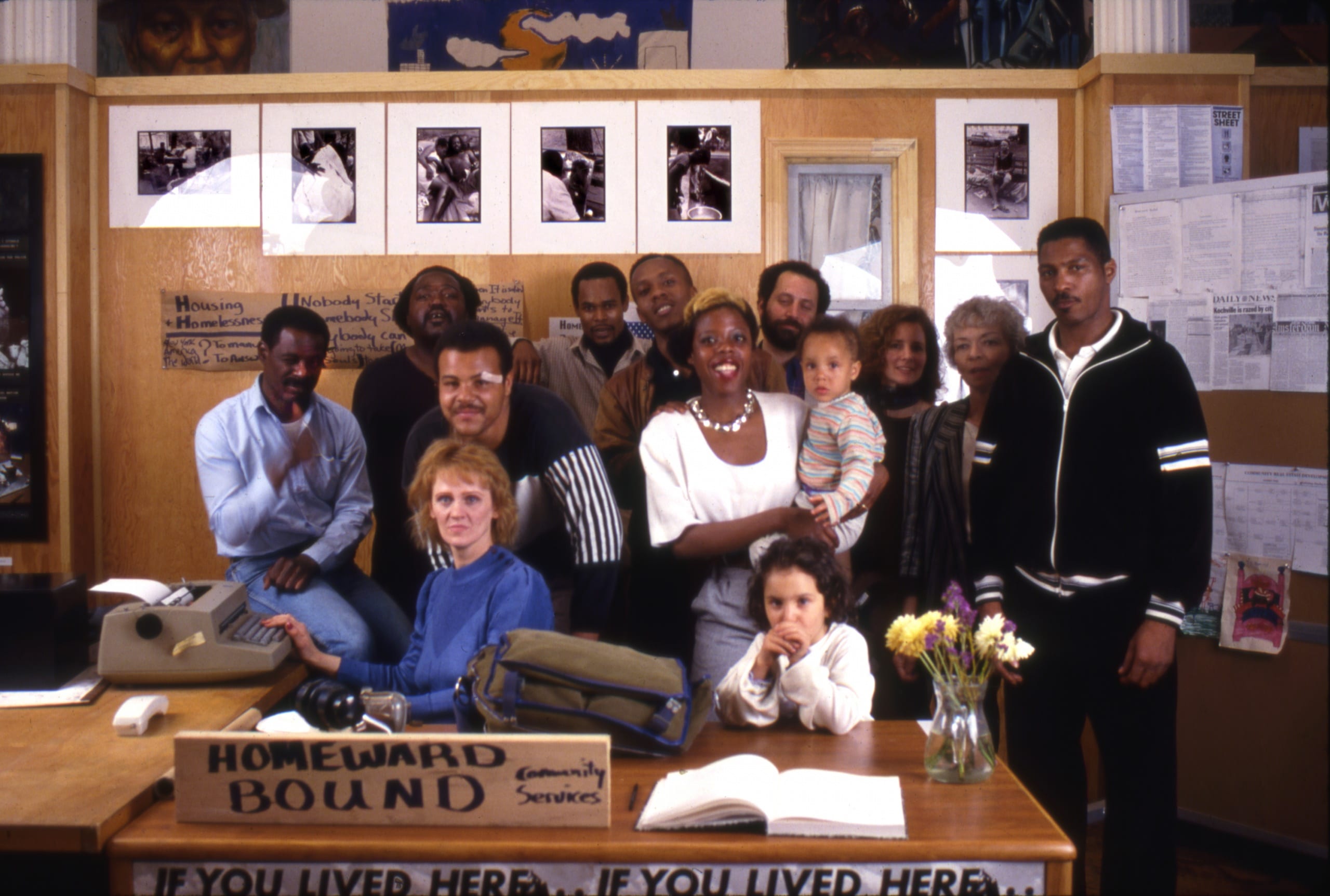By Swagato Chakravorty
Swagato Chakravorty reviews Surface: Matters of Aesthetics, Materiality, and Media by Giuliana Bruno.
Two for One: robbinschilds in conversation with Dina Deitsch
By Dina Deitsch
In the final installment of her three-part interview series, curator Dina Deitsch speaks with robbinschilds about site, collaboration, and the process of creating Constructions I–IV, which was commissioned for the 2011 exhibition Temporary Structures: Performing Architecture in Contemporary Art at the deCordova Sculpture Park and Museum.
Bookshelf: Judith Rodenbeck
Judith Rodenbeck shares her summer reading in the newest installment of Art Journal Open’s Bookshelf series.
Bookshelf: Matthew Israel
In this week’s Bookshelf, Matthew Israel shares what he’s reading.
Bookshelf: Steven Nelson
Steven Nelson shares what’s on his bookshelf.
“The Cat Is My Medium”: Notes on the Writing and Art of Carolee Schneemann
By Thyrza Nichols Goodeve
For several years, Carolee Schneemann has presented an ever-evolving performative lecture about her work, starting with drawings she made at the ages of four and seven. I first saw it in 2009 at St. Mark’s Church.
Not Getting There Is Half the Fun: Holidays with Freud
By Elizabeth Legge
Elizabeth Legge reviews Sharon Kivland’s Freud on Holiday series.
Bookshelf: Megan A. Sullivan
Megan A. Sullivan shares her summer reading list in this week’s Bookshelf.
Bookshelf: Lenore Chinn
For the newest installment of Art Journal Open’s Bookshelf series, artist Lenore Chinn shares the books on her shelf.
Bookshelf: Rebecca M. Brown
For the first in Art Journal Open’s new Bookshelf series, Rebecca M. Brown shares what’s on her reading list.
Broken Dishes: Kate Gilmore in Conversation with Dina Deitsch
By Dina Deitsch
For the second installment of her conversation series, curator Dina Deitsch speaks with artist Kate Gilmore about Gilmore’s process of creating Like This, Before (2013), and the importance of breaking things and laughing about it.
In, Around, and Afterthoughts (On Participation): Photography and Agency in Martha Rosler’s Collaboration with Homeward Bound
By Adair Rounthwaite
It seems obvious to state that photographs play a central role in our ability to study participatory art. Art historians, however, have largely bracketed this as an issue that might be important for how we conceive the politics and aesthetics of participation.

